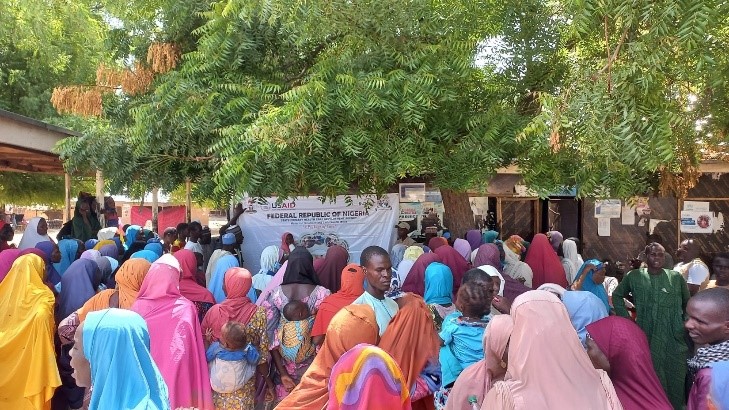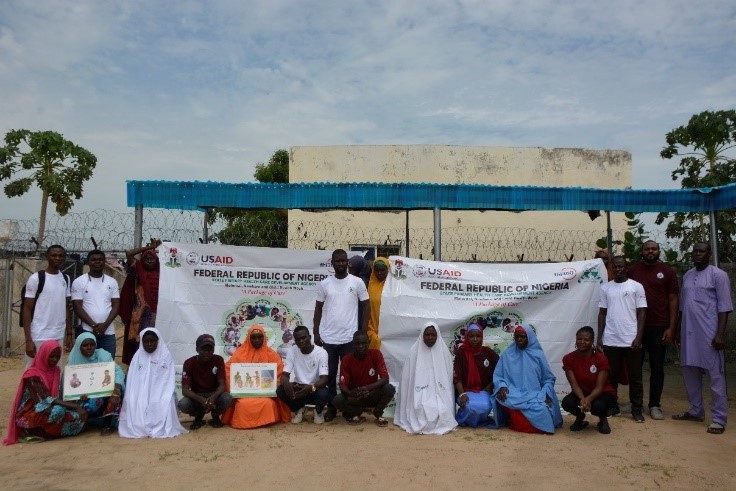MATERNAL NEWBORN AND CHILD HEALTH WEEK
AN SURE-SN SUCCESS STORY
The Maternal Newborn and Child Health Week (MNCHW) is a week-long event organized by the National Primary Health Care Development Agency (NPHCDA), State Primary Health Care development agencies, and the State Ministries of Health. The week is organized to deliver an integrated package of highly cost-effective and curative services/interventions like antenatal care to strengthen routine PHC services. The NPHCDA describes the week as ‘a simple one-time delivery mechanism that consolidates services that are likely to immediately demonstrate impact in terms of significantly increasing coverage levels of core preventive and curative interventions that can improve the health of mothers and children.
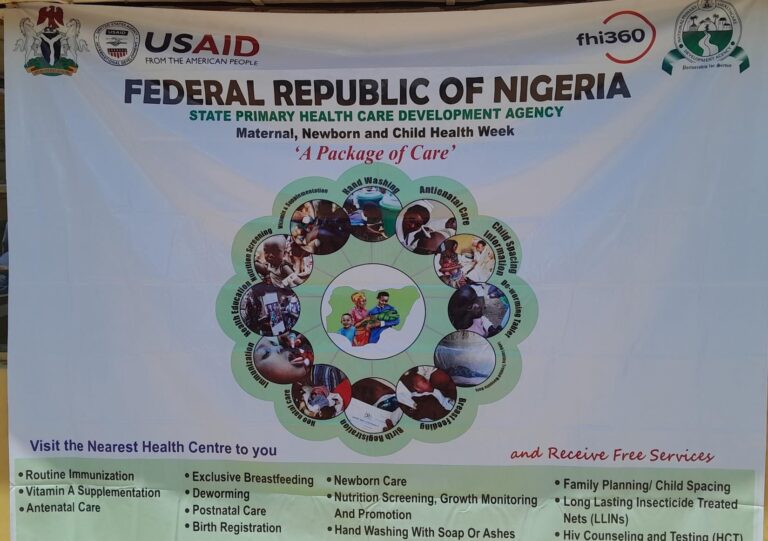
FHI 360 celebrated the week in Bama, Banki, Damasak, and Ngala of Borno State where the USAID-funded Strengthening Humanitarian Response and Sustainability (SURE-SN) Project in Nigeria is implemented. These locations are part of the areas affected by the lingering armed conflict in the state thus, there are restraints on the provision of quality maternal and child health services. In humanitarian crises, affected persons experience limited access to nutritious, safe, and affordable food and clean water; disruptions in essential health and nutrition services; and constraints to optimal feeding, care, and hygiene practices. The greatest consequences are borne by children, adolescents, and women. Due to the continuous movement of internally displaced persons (IDPs), there tends to be misinformation about healthy practices among mothers leading to putting the health and well-being of children at risk.
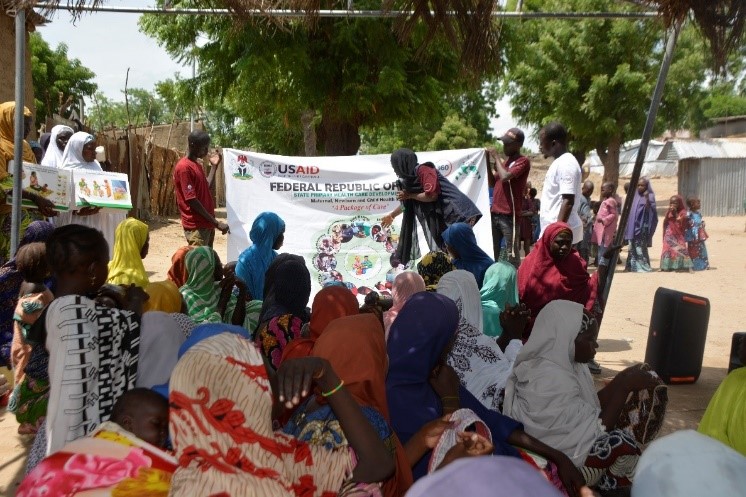
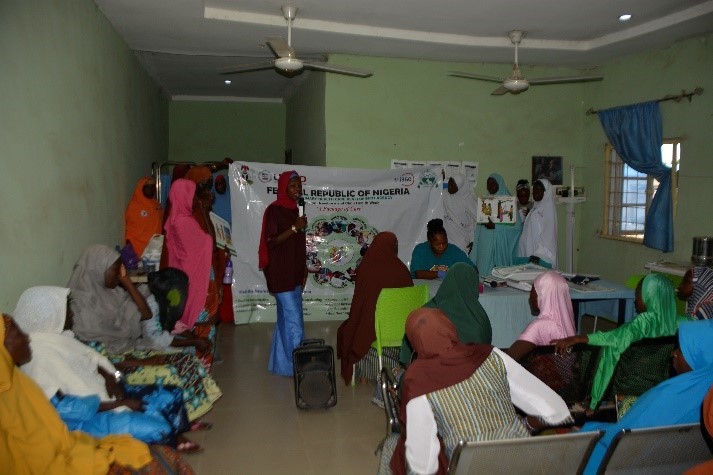
The myths that immunization is the “white man’s” way of achieving family planning and population control preceded the humanitarian crisis. Lack of knowledge about preventing the six killer childhood diseases – pneumonia, malaria, diarrheal, measles, HIV, and meningitis; the beliefs that witches spiritually cause ill-health, unorthodox medicine, and religion contributed to hinder immunization programs.
A series of events were carried out to mark this year’s MNCH week targeted majorly towards educating the community on the responsibility of each person in MNCH matters. The services provided include:
- Routine Immunization
- Vitamin A Supplementation
- Antenatal Care
- Newborn Care
- Nutrition Screening, Growth Monitoring, and Promotion
- Hand washing with Soap or Ashes
- Exclusive Breastfeeding
- Deworming
- Postnatal Care
- Birth registration
- Family Planning/ Child Spacing
